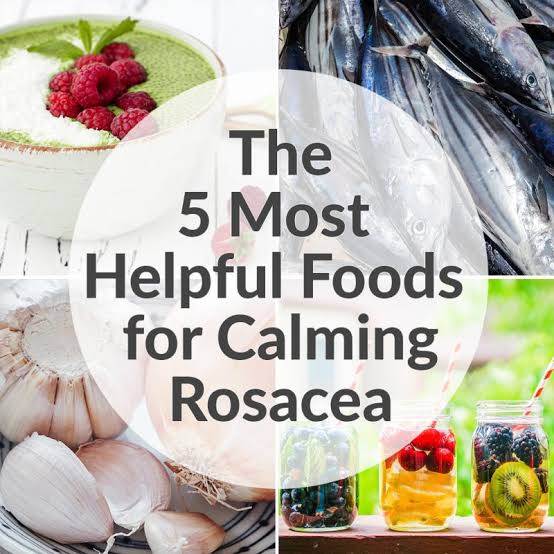Managing rosacea can feel like an uphill battle, but one often overlooked factor in reducing flare-ups is your diet. Certain anti-inflammatory foods can play a crucial role in soothing the redness, bumps, and irritation associated with rosacea. Incorporating the right nutrients into your meals can complement topical treatments and give your skin a much-needed break from inflammation.
Understanding Rosacea and Its Triggers
Rosacea is a chronic skin condition characterized by redness, visible blood vessels, and, in some cases, acne-like bumps. It commonly affects the face and can be triggered by factors such as stress, heat, alcohol, spicy foods, and even certain skincare products. While there isn’t a permanent cure, understanding your personal triggers and adopting anti-inflammatory habits can significantly reduce symptoms.
A balanced diet rich in foods that help rosacea inflammation can complement skincare treatments. These foods help combat the internal inflammation that exacerbates rosacea, promoting healthier, calmer skin. Additionally, pairing these efforts with topical products like azelaic acid 14% can reduce redness and improve skin texture over time.
Top Foods for Reducing Inflammation
Here are 10 anti-inflammatory foods that can help soothe rosacea symptoms and promote healthier skin:
1. Fatty Fish
Salmon, mackerel, and sardines are rich in omega-3 fatty acids, which reduce inflammation throughout the body. Omega-3s also strengthen the skin barrier, making it less prone to irritation and redness.
2. Green Leafy Vegetables
Spinach, kale, and collard greens are loaded with antioxidants and vitamins like A and C, which fight inflammation and promote skin repair. These greens are easy to incorporate into smoothies, salads, or stir-fries.
3. Blueberries
Blueberries are a powerhouse of antioxidants, specifically anthocyanins, which combat oxidative stress and inflammation. Their anti-inflammatory properties make them a great snack or addition to yogurt and oatmeal.
4. Turmeric
Turmeric contains curcumin, a potent anti-inflammatory compound. Adding turmeric to your meals or drinks can help soothe flare-ups. For better absorption, pair it with black pepper.
5. Avocados
Avocados are rich in healthy fats and vitamin E, which nourish the skin and reduce inflammation. They also help maintain hydration, a key factor in managing rosacea.
6. Sweet Potatoes
Packed with beta-carotene, sweet potatoes are excellent for reducing inflammation. Their natural sweetness also makes them a versatile addition to both savory and sweet dishes.
7. Probiotic-Rich Foods
Yogurt, kefir, and kimchi support gut health, which is closely linked to skin health. Probiotics help balance the microbiome and reduce inflammation, keeping rosacea flare-ups at bay.
8. Green Tea
Green tea is rich in polyphenols, which have anti-inflammatory and antioxidant properties. Drinking green tea or applying it topically can calm redness and irritation.
9. Cucumber
Cucumbers are hydrating and contain compounds that reduce swelling and redness. Incorporating cucumber into your diet or using it as a soothing facial treatment can be beneficial.
10. Walnuts
Walnuts are another excellent source of omega-3 fatty acids. They’re a convenient snack and can be added to salads, oatmeal, or baked goods to enhance their anti-inflammatory power.
Final Thoughts
Incorporating these anti-inflammatory foods into your daily routine can help manage rosacea from the inside out. Pair dietary changes with effective topical treatments like azelaic acid 14% for optimal results. Additionally, supporting overall health with products like hair supplements can contribute to a well-rounded self-care regimen.
By combining a skin-friendly diet with targeted skincare, you can take significant steps toward calming your rosacea symptoms and enjoying healthier, more radiant skin.

